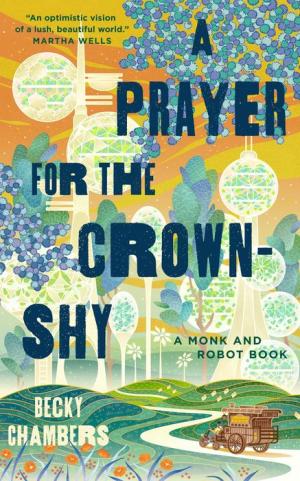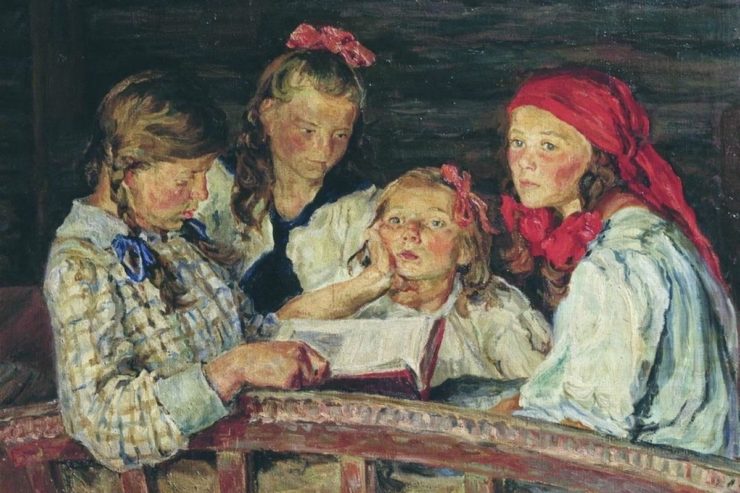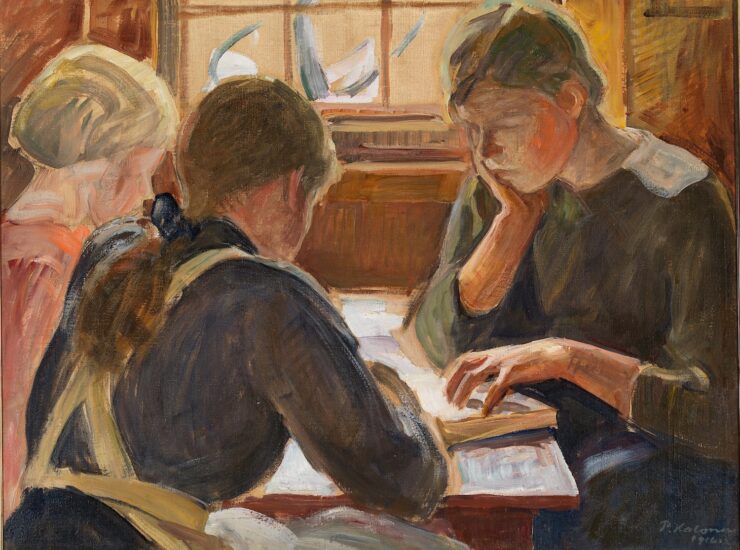Recently, I finished a book that sounded like exactly the kind of book I would love, and watched a movie about which I knew nothing other than it was made by a director whose first film I adored. And in both cases, my expectations didn’t quite line up with my experience.
I did not have outrageous expectations. I didn’t need to be swept away with delight or find my new favorite thing ever. Both works came with a certain amount of hype: a dramatic acquisition history, awards buzz, rave reviews. But expectations aren’t formed from those things alone. You can’t just turn off the internet and assume that you’re subsequently going to experience art in some kind of pure, unsullied moment, free of all influence. Even if you don’t know anything about the book you’re about to crack open, you’re still you. You’ve still been thrilled and disappointed by stories before. You’ve learned something, with every book and movie and TV series, about what you like and find interesting and frustrating in stories and characters and styles. The first page will tell you something about what you’re reading. The first frames of a movie will resonate with all those movies you’ve seen before. Expectations take shape, bit by bit.
So how do we manage those things?
I’ve always loved movie trailers, since long before I knew the word “trailers.” I insisted on getting to movies in time for the previews. You can chalk some of this up to the simple fact that I grew up without a TV in the house, so these little ads for movies were disproportionately thrilling. Trailers are, at their best, a tiny art form, a distillation of a larger work that somehow gives you all the right impressions and yet gives nothing away. (Many trailers, like many movies, are terrible.) They’re as close as you can get to the experience of listening to just one song and then deciding to buy a record.
When I know I want to see something, I don’t always watch the trailers. This has very little to do with spoilers and everything to do with expectations, with what the trailers will lead me to anticipate. I’ll find myself watching for certain scenes, noticing cuts that were different in the trailers, thinking ahead about what a scene or shot signifies. The things that are familiar from the trailers feel different. Not always. But sometimes.
But if you don’t know anything about a book or a movie or a TV series, how do you know what you want to see? How can you learn just enough to pique your interest without tipping into the land of raised (or lowered) expectations? Is it just a tweet or a mention, a tiny nugget of story that swims past you as you navigate the sea of online opinion and marketing and hype and conversation? Is it an actor, a writer, a director, an adaptation? (Those come with their own baggage, naturally.) The latest story in a series? Can’t a series sometimes be the source of the highest expectations and the greatest disappointments?
I know I’m not in the most average position here. Part of my job is entertainment news; I watch trailers for everything, including things I’ll never see; I read the announcements when movies and books and shows are sold; I know the details, the director’s resume, the author’s previous work. Writing book reviews involves paying at least some attention to what is coming out three to six months down the road, and trying to gauge whether those books are things I want to write about. I’ve spent years doing this with movies and books. It’s a hard habit to shake.
I also know I’m not alone in this. It’s easier than ever to know so much about everything coming out, every new book, every upcoming film, and you can’t read or see everything. Too much media, too little time. Details help us make decisions. But are they sometimes too much? Does hype inevitably lead to backlash, or just sometimes, and why those times? Does wanting to like something sometimes make the fall even harder when it doesn’t live up? Is it possible to cultivate a sort of enthusiastic neutrality about the next thing you’re going to read? Would you want to?
Everything shapes the way we respond to art. The colors on the book cover. The font choice. The first words. The words on the back cover, which the author didn’t write. The blurbs. The paper. The price of the book. The author’s Twitter presence. Some of these things can be ignored. Some are part of the process.
Once upon a time, someone I know told me he cultivated what he called “negative utopianism,” which was his way of saying that if he always expected things to be bad, he could enjoy the experience of being surprised when they were good. There’s a pragmatism to this that I understand, deep in my bones. I love being surprised by art—not just by twists and unexpected choices, but by drab-looking books that soar, by movies that sound awful but work perfectly. To be surprised, though, you have to accept that you expected something else. That surprise is a product of some expectations.
Buy the Book


A Prayer for the Crown-Shy
But I can’t shake the greater pleasure of having hope. Of wanting things to be good and delightful and thought-provoking; of expecting compelling prose and intriguing characters and a writer’s voice that I can’t get out of my head. Of the kind of stories that make me want to consider the world in a new light, or that say something I always knew, just in a different voice, one that resonates. I want so many things to be good—I want the Sam Esmail Battelstar Galactica show to happen and I want to love someone on it as much as I loved Katee Sackhoff’s Starbuck. I want the next debut novel I read to knock my socks off and change my syntax for a few days while it works its way through my system. I still, despite everything, want to love Obi-Wan Kenobi and get totally wrapped up in The Winds of Winter.
It can feel, sometimes, like we’re not supposed to have expectations, and definitely not supposed to talk about them. We’re just supposed to receive everything on even footing, pretending we don’t all have cultural and personal and emotional histories that affect the way we respond to every single thing we read and view and experience. You’re not really supposed to admit that you thought the book by the slightly famous author was going to be bad, or that the trailers for a movie made you think it was something else entirely. But it’s so much more honest to own up to them, to address the things we bring to the art we choose to experience, to make plain that no reaction is objective. And it’s more interesting, too, to grapple with those expectations and biases and inclinations, to bring them out into the light and see how they shape our responses to everything.
Once in a while, though, something comes along for which my expectations are entirely unprepared. Whatever I thought I knew simply couldn’t measure up to what I actually read or saw or heard. It can happen, though it can’t always happen. It’s happened to me with all kinds of books: Jami Attenberg’s memoir I Came All This Way to Meet You, Megan Fernandes’ poetry collection Good Boys, Lynne Bertrand’s YA novel City of the Uncommon Thief, Jordy Rosenberg’s novel Confessions of the Fox, Sarvat Hasin’s novel The Giant Dark. I wanted to like all of them. I didn’t have any idea I was going to love them—maybe need them—the ways I did. No expectations, however great or low, can get in the way of the things that sing to you the loudest.
Molly Templeton lives and writes in Oregon, and spends as much time as possible in the woods. Sometimes she talks about books on Twitter.














